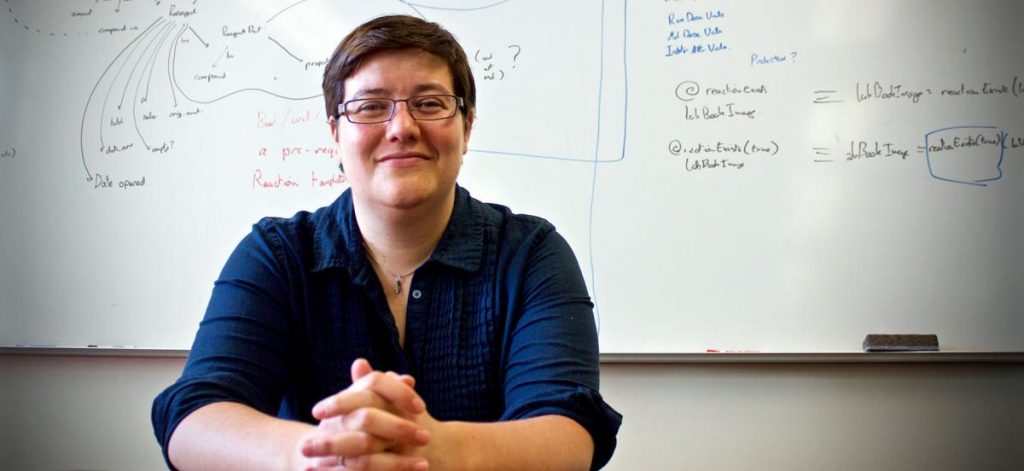A Haverford Professor’s search for bias in algorithms
By Audra Devoto
“I like this algorithm; it’s clever” Sorelle Friedler said to her Haverford College class, tilting her head back and admiring what looked to be a tangle of dots on the screen. The algorithm she was referring to could discern which two dots out of millions were closest to each other in the blink of an eye—clever indeed.
Algorithms, or computer programs designed to solve problems, are gradually becoming so sophisticated that referring to them with human qualities is not unwarranted. Now used to make decisions ranging from the advertisements we see to more sinister outcomes, such as the sentencing order a judge might hand down in court, algorithms are quietly and constantly affecting our daily lives.
Friedler is well aware of the power of algorithms. She has purposefully embedded them in her life by studying them in an academic context.
In an interview sandwiched between classes, labs, and meeting with thesis students, Friedler talked easily and with obvious ardor about her research on algorithms.

— Sorelle Friedler
After graduating from Swarthmore College, she attended graduate school at the University of Maryland, where she studied the algorithms that can be used to describe objects in motion. Then she left academia seeking a different kind of challenge: Google.
“It was a lot of fun to get to see inside the belly of the beast for a while,” she recalled almost wistfully. But she said doesn’t miss the corporate atmosphere.
“It doesn’t give the leeway necessarily to work on what you are interested in”, she said, “or to go off on a tangent that might not be related to the task at hand”.
Friedler worked in a semi-secret division of Google called simply ‘X’, on a project aiming to provide universal internet access through weather balloons. If it sounds crazy, well, that’s kind of the point.
“[X’s] goal is really to tackle moonshot problems” Friedler said. But ultimately, Friedler said, “I liked the autonomy of being a researcher in an academic environment.”
Friedler’s current work is a reflection of something that she cares about deeply: discrimination and bias. Continue reading
